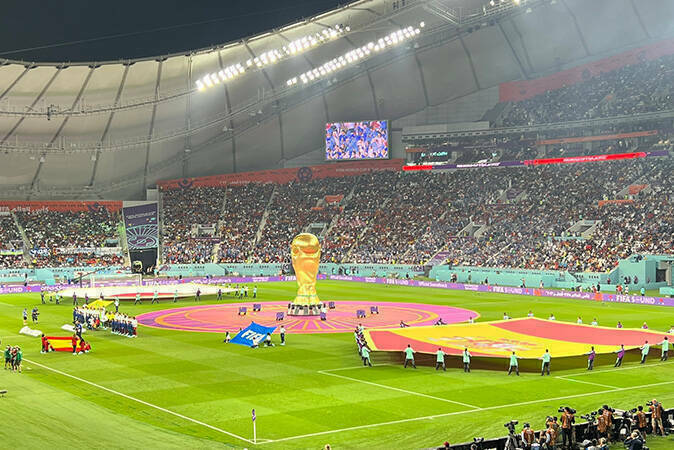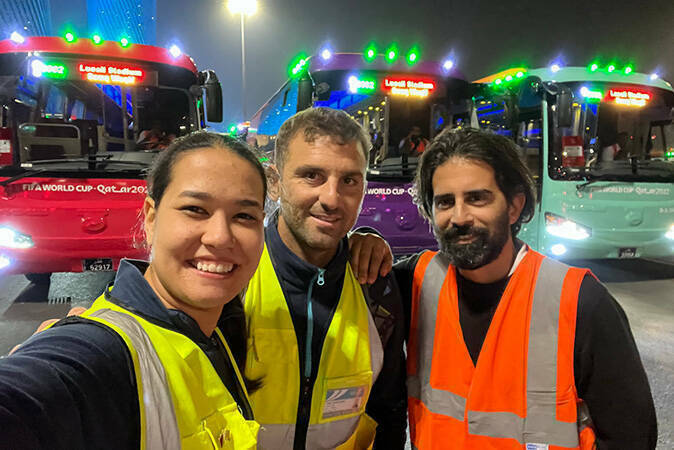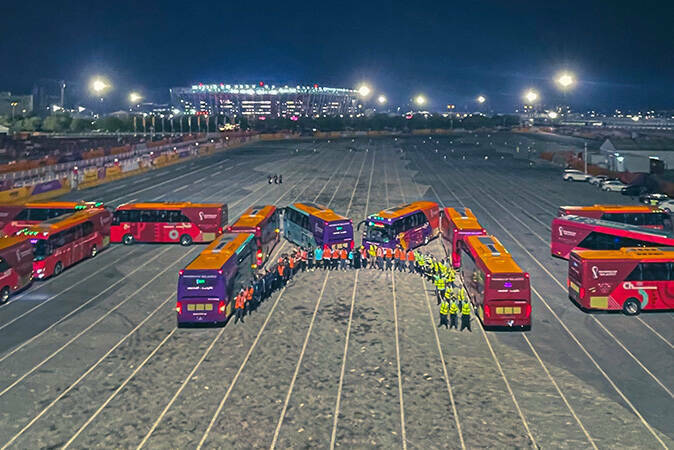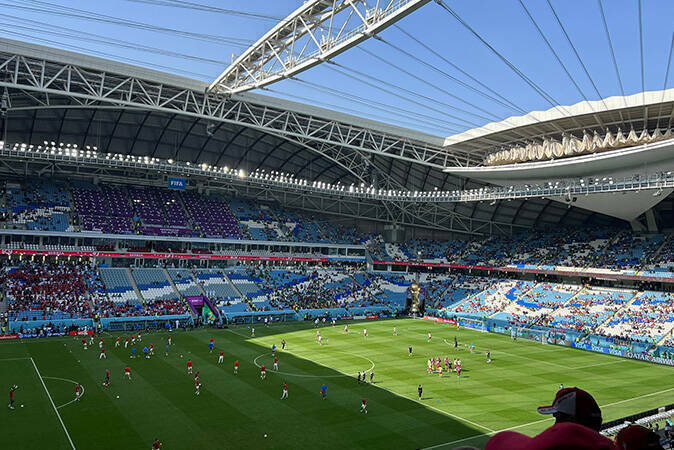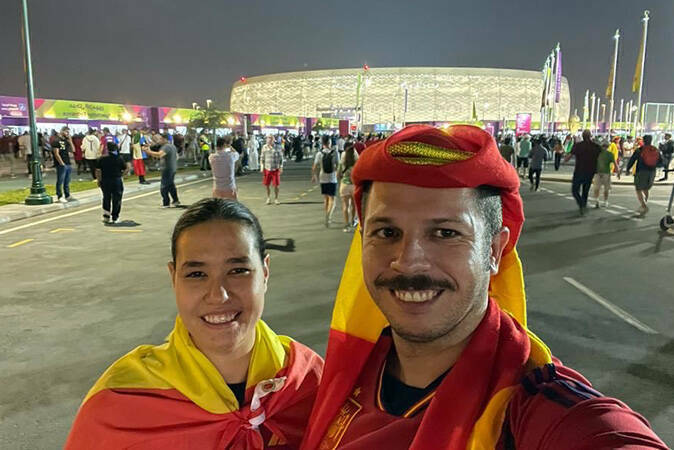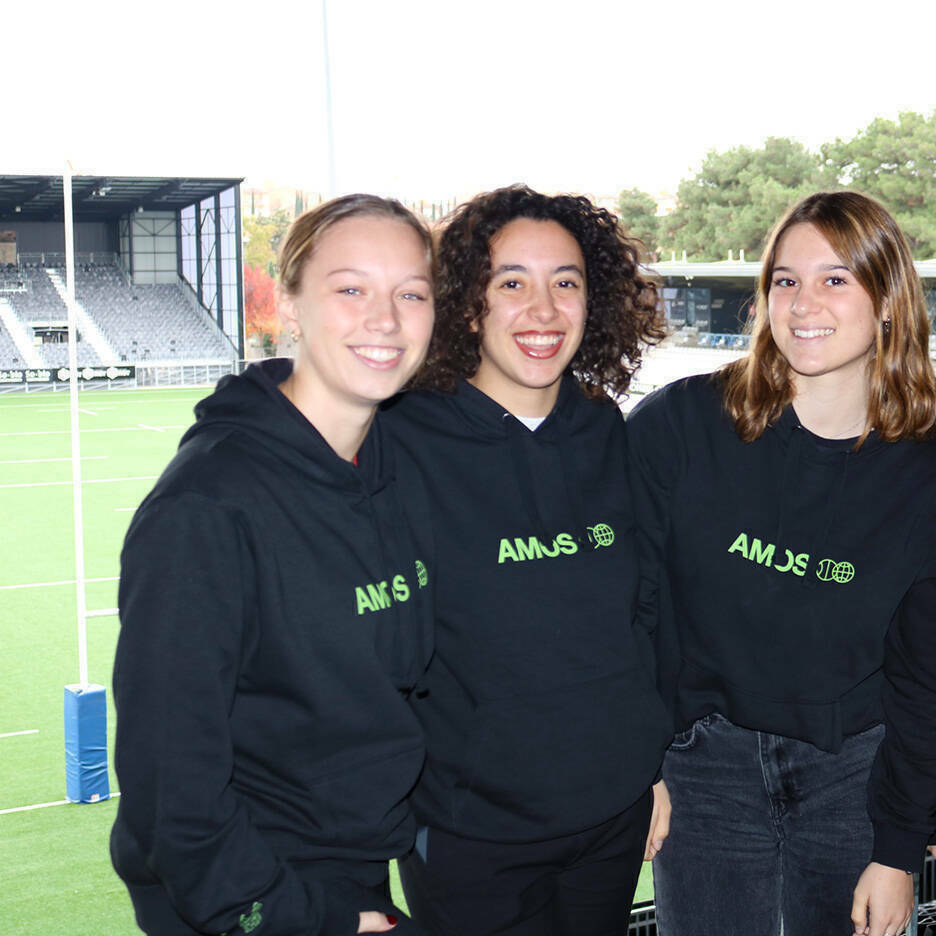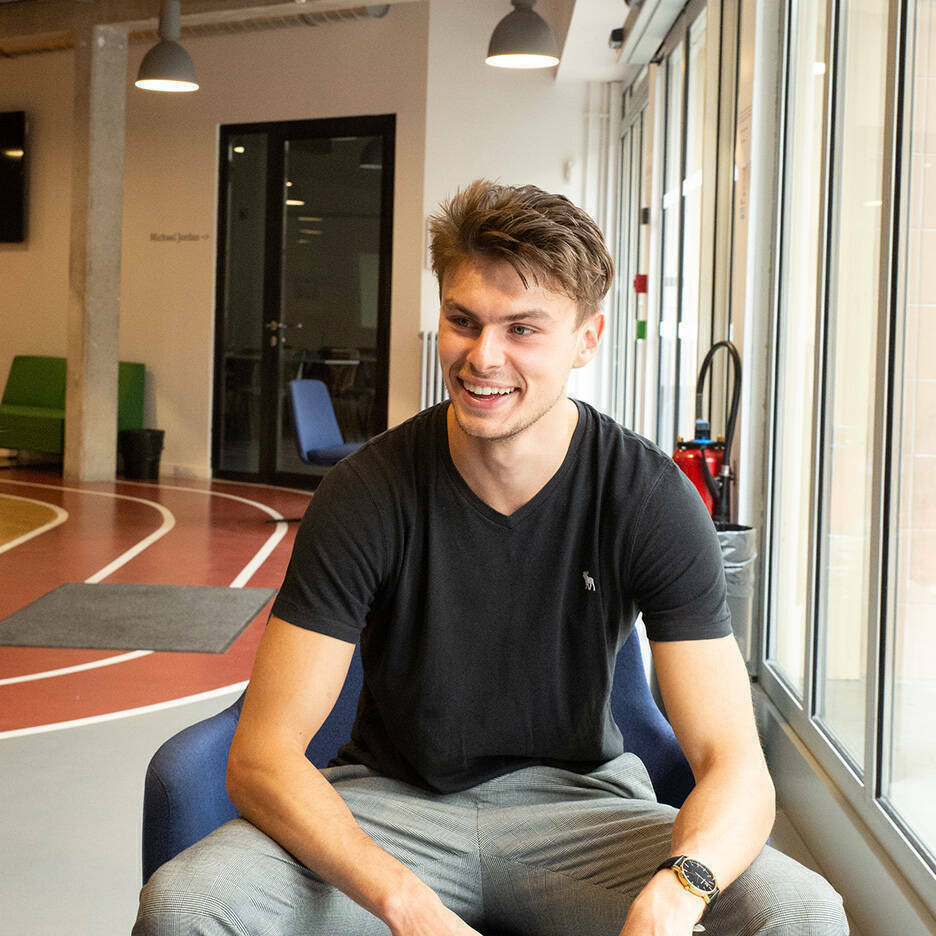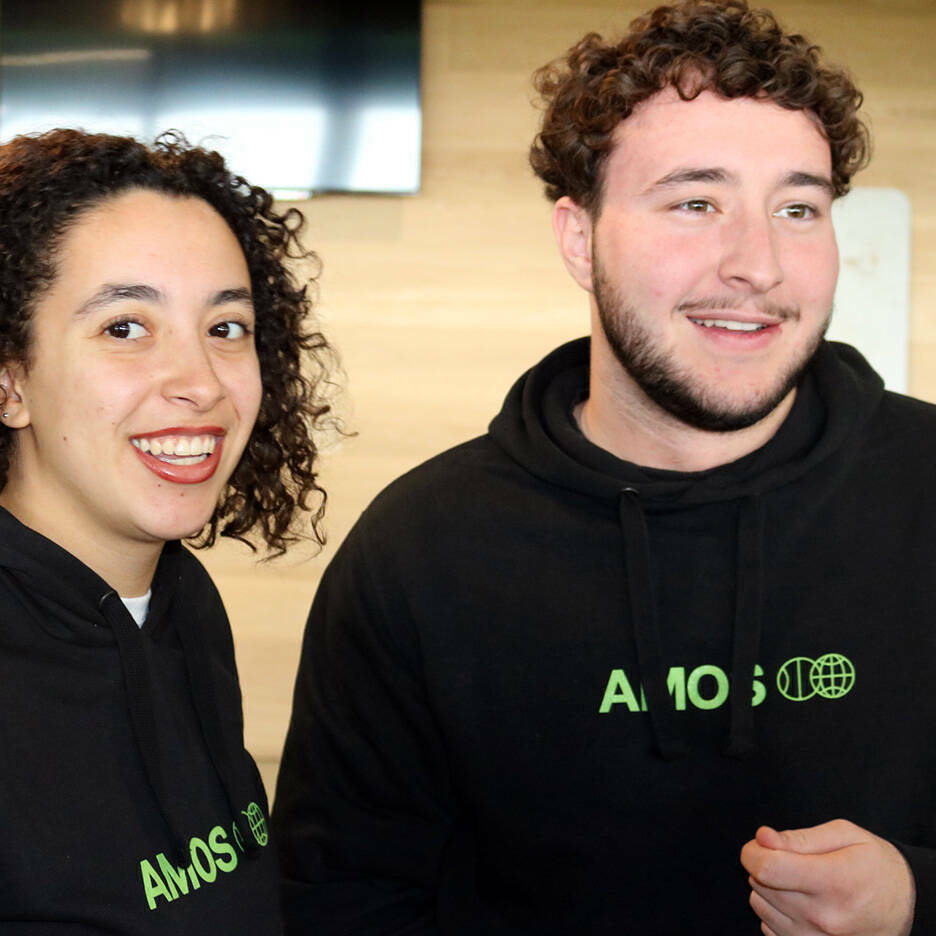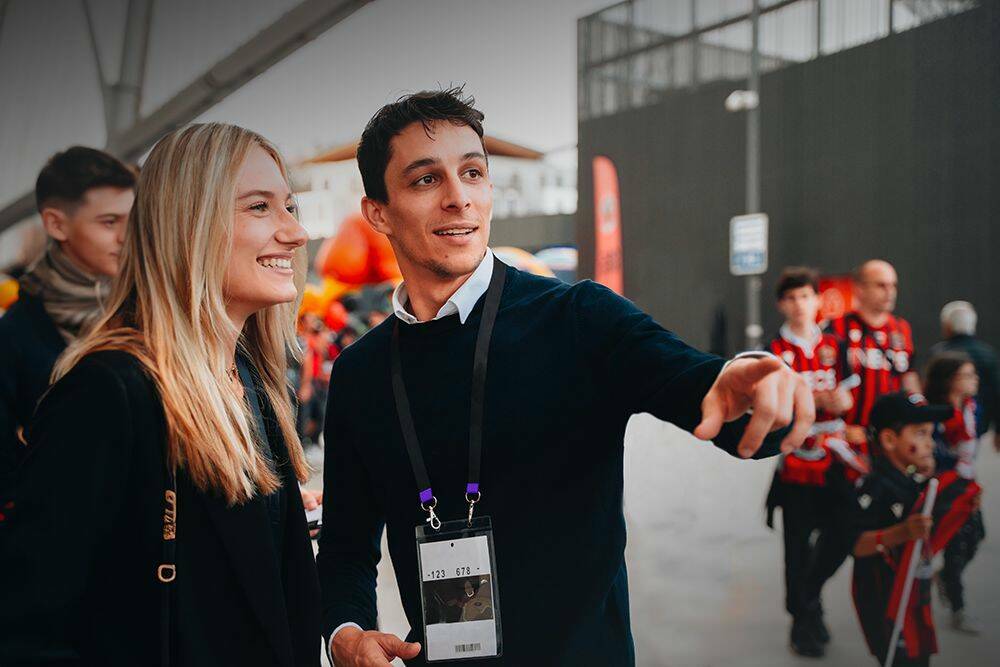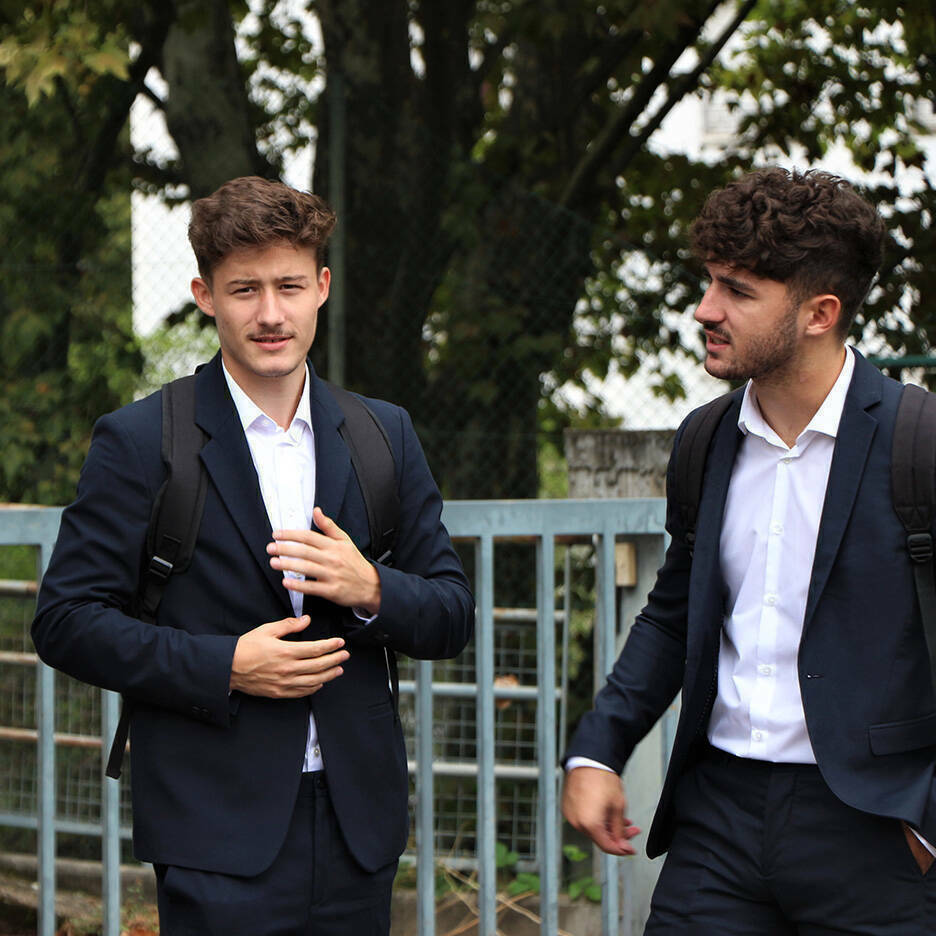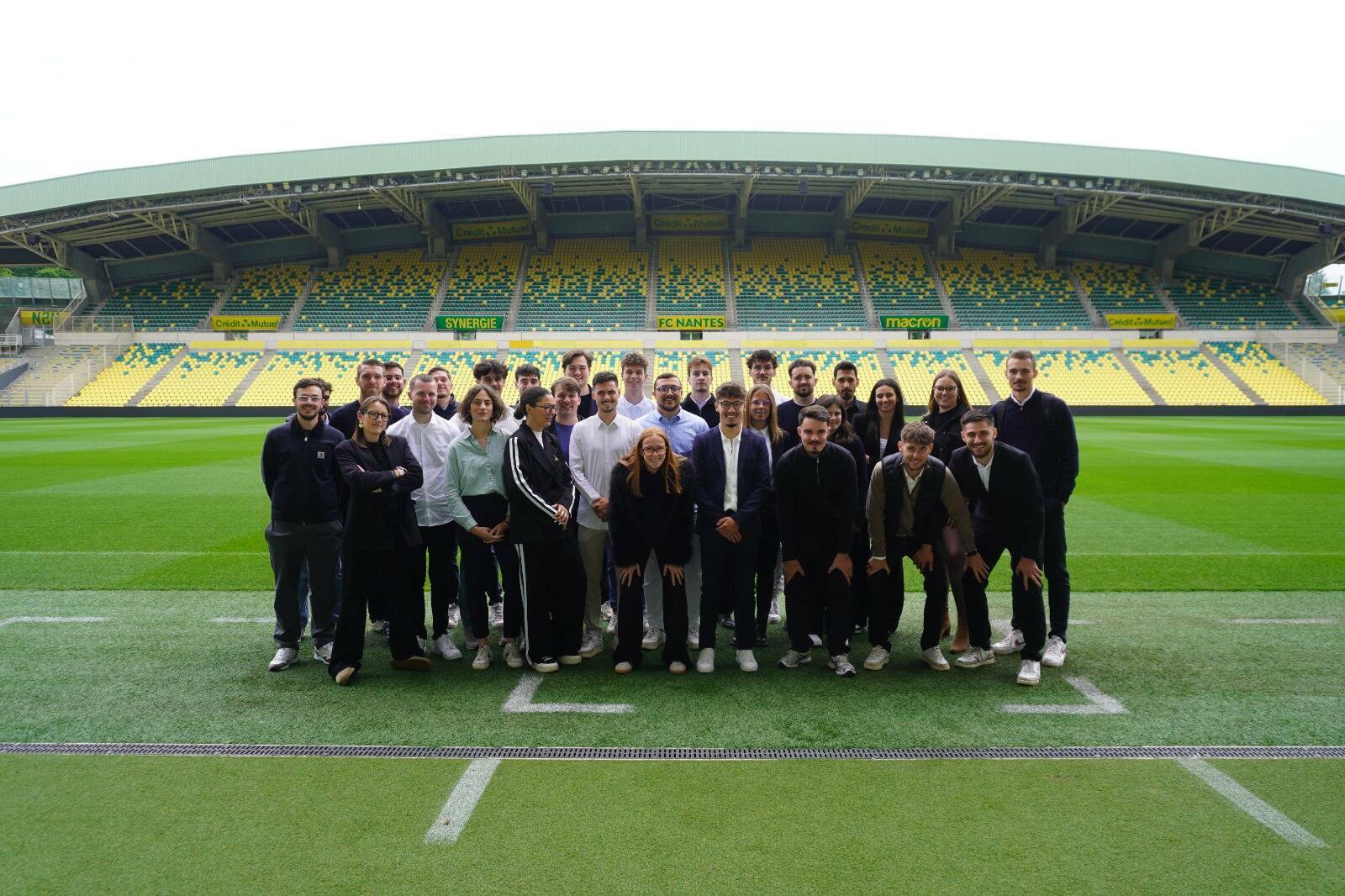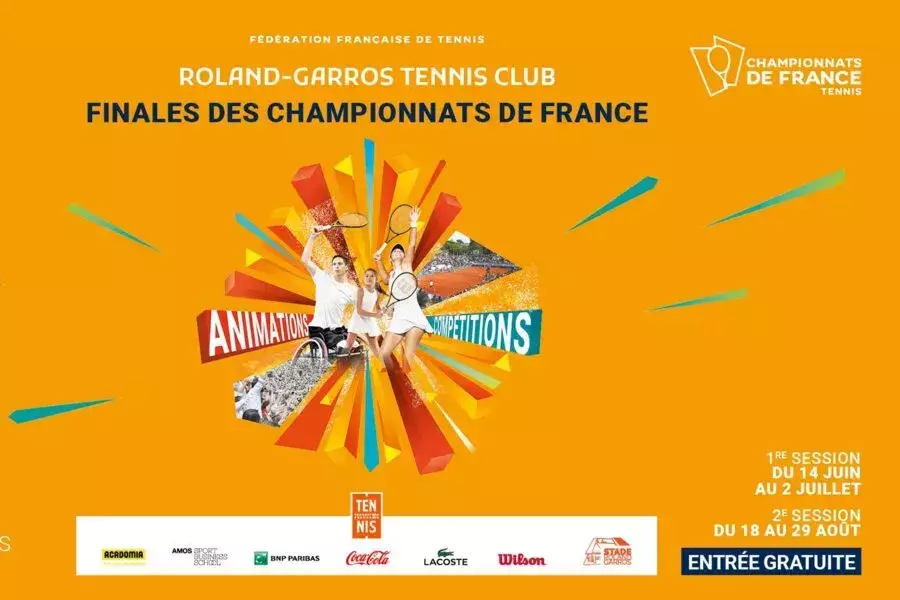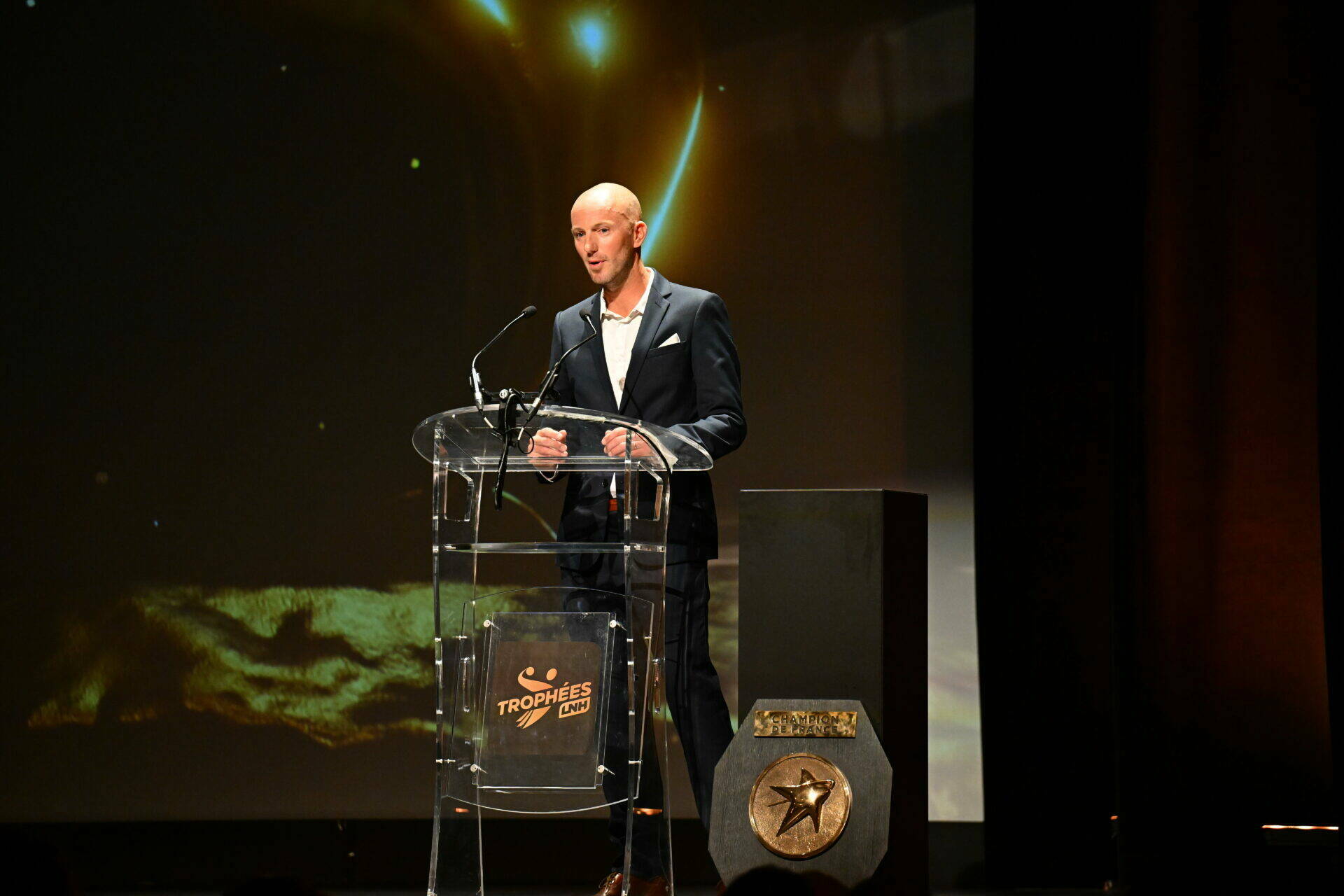GSBM alumni interview Nathalie, Fifa 2022 World Cup
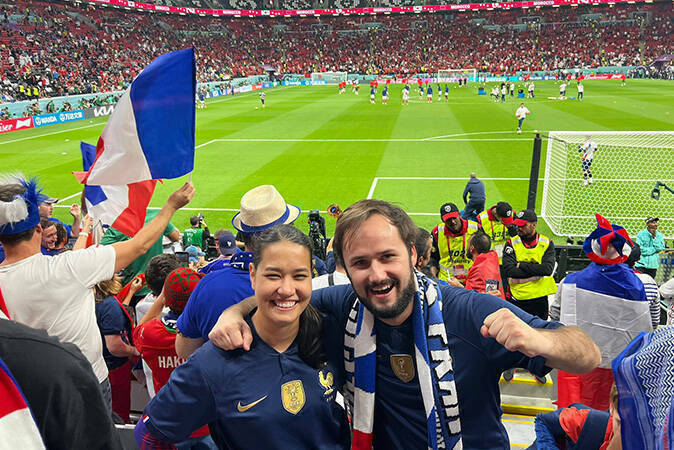
The view of an insider on how things went in Doha
On the 18th of December 2022, at the Lusail Stadium, the 22nd Men Football World Cup ended on a dramatic final, which saw Lionel Messi and his teammates winning the most desired trophy. Never in history, the attribution and the preparation of a World Cup had provoked this many reactions from governments, organisations, newspapers, and people all around the world.
It was, within this tense climate, a little over a month ago, that our alumni Nathalie Deutsch, Workforce Operations Manager at TMS, was getting ready to live the biggest experience of her young career.
A month later, we are reaching back to her, to have the view of an insider on how things went in Doha – Capital of the Qatari Peninsula. For our former Global Sport Business Master student, the general mood around the World Cup changed when the competition started.
« A lot of people have criticized the competition, wanted to boycott, and they had their reasons for it. As a member of the staff, we did not agree with everything that happened here, however, at our level, we made sure to deliver everything ethically, and in a way, it was successful ».
The competition was a success, as soon as Daniele Orsato (referee who officiated the first game of the tournament) blew the start of the first match, fans were once again enthusiastic. Focusing on the performances of their team, people were cheering all around the world and the polemics were put aside, leaving us with what a World Cup is meant to be: a moment in which the whole world comes together to share vivid emotions.
Fan experience
Over the past 4 months, I had the chance to write a couple of articles on her adventures, which taught us a lot about the organisation of such an event, notably the fact that changes are made up to the very last minute, and the result is never guaranteed. However, the hard work and dedication of the teams paid off as the fan experience received great feedback.
« I had the opportunity to see a few games, especially the semi-finals and the final, and I have to say, apart from a few things that you will always have in this kind of competition (queueing to get into the stadium, customer service that could be improved…), the services were great. Overall, it was super easy to get around and there was a great atmosphere ».
Regarding the games she attended, one obviously stuck to her: the final! « 80% of the stadium was filled with Argentinian fans, they were good fun! Every time Messi touched the ball, the whole stadium was like… wow! It was special moment ».
Collaboration between multiples stakeholders
Organising a Global Sporting Event is about finding a way to successfully collaborate with multiple stakeholders. And we have known from previous interviews and the international press that it is not an easy process. Multiple newspapers relayed the difficult relations between FIFA and the Qatari Supreme Committee for Delivery & Legacy during the build-up of the competition.
However, according to Nathalie, once the competition started, the momentum took over and everyone found a way to work together.
« When the operations come live, the collaboration between stakeholders gets better. We have meetings, and every time there is a problem, a representative of each entity is present to discuss it and find a solution. Everyone came together and worked closely to get things done. The approaches are sometimes different from a stakeholder to another, but the end goal is the same, having a wonderful competition. I think that the World Cup brought the best out of Qatar, and that is what everyone saw, whether they were there or in front of their television ».
The World Cup legagy
According to the Qatari’s ambassador in Russia, the total cost of the world cup is around $200bn, which is according to Sky Sports, « many times higher than any budget spent on similar events in history ».
Qatar has built 8 stadia, over 100 hotels to host the teams and the fans, as well as a brand-new underground for the crowd to navigate easily. With all these news infrastructures, the question that is yet to be answered is the one about the legacy.
For Nathalie, everything was planned. « In terms of transport, the metro is something that was needed, wh@ether international competitions are happening or not, it will still be of great use for the locals and tourists ».
« Regarding the stadia, from what we know, they will have a capacity reduction and will be used for local or international events » (as mentioned in the previous articles, Qatar will host the upcoming international Asian Games as well as the Asian Football Cup AFC). The Education City stadium will become part of the wider Qatar Foundation facilities for university students.
« The stadium made up of ship containers (Stadium 974) will be dismantled and repurposed. Obviously, Qatar is not going to be as busy as some other countries, which have an all year long sporting calendars, but they will still use the vast majority of the infrastructures that were built for the World Cup ».
« All in all, Qatar proved that they were able to create and manage a mega event, and it will probably bring many opportunities for this country in the years to come ».
Post World Cup duty
In the mind of most spectators, once the final is over everything ends and their lives go back to normal, and the only things remaining are memories. But for the managers on the field, it is another story. The work there isn’t quite finished, it is even the beginning of a new adventure.
The first two weeks after the competition consisted of sending her staff home, and since the new year Nathalie has been focusing on a legacy job.
« I am currently busy compiling information and data from the competition, then writing action reports, preparing handovers for whoever wants to know about the event, because there are other events coming up, and even if my team will not be there, someone will need to use what we built to deliver the future events ».
Nathalie will be staying in Qatar until the end of March, ensuring that all reporting is done, before heading back to London where she will have some well-deserved holidays! After that she will be looking for a new job, whether in Workforce or any other part of the sporting event industry!
There is no doubt that the future of this promising young lady will be bright as well as for the companies who will have the chance to have her on their team. And we will, of course, keep following her in her next adventures!
Written by Guillaume Faure, Communication Officer AMOS London
Les autres articles
Retrouvez les autres Actualités Sport Business des campus AMOS
Découvrez nos formations
Un diplôme de niveau bac+5 est courant pour ce type de métier. Un bachelor associé à un master ou un Programme en 5 ans permet de développer des compétences diverses. En effet, en plus d’élargir ses connaissances sur le marché du sport, les étudiants se spécialisent dans le management, la communication et le marketing du sport.
